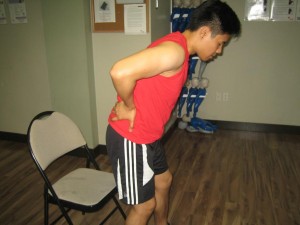Head numbness is best described as head paresthesia which is experienced as a distressing lack of sensation in the head or regions of the head and face. It is important to note that this numbness can develop due to various causes in which some can be traumatic while others are caused by an underlying health condition or infection.
Nerve injury
Cases involving trauma to the head can cause nerve damage that will lead to head numbness as well as other acute neurological conditions. The pressure and irritation on the cervical nerves as well as traumatic injury to the head can cause blood loss which contributes to the loss of sensation in the scalp, head and face. Take note that the trigeminal nerve can also be damaged as a complication of dental treatment or affected by a certain condition such as diabetes.

Herpes zoster
Herpes zoster or shingles can affect groups of facial nerve clusters and the cervical nerves. The condition causes the manifestation of various symptoms including intense pain, itchiness, tingling and head numbness. The numbness can only occur on one side of the head.
Injury to the spinal cord
Trauma, irritation or an underlying degenerative disease that affects the cervical nerves along the spinal column can cause head numbness. The cervical nerves particularly C1-C4 is responsible for relaying sensation to the face or head. Conditions such as multiple sclerosis, meningitis, tumors and degenerative disc disease can affect the spinal cord.
Tick bite
Bites from ticks can trigger acute paralysis of the muscles that control eye movement and other neurological reflex conditions. The toxin present in the saliva of ticks or bacteria transmitted through a tick bite can lead to head numbness.
The ticks that carry Lyme disease can trigger head numbness that spans for months or even years after the bite.
Stroke
A stroke can also cause head numbness by limiting the flow of blood to the brain and head. The flow via the artery in the neck is also disrupted while the circulation of oxygen is impeded, thus resulting to the numb sensation. If you will register for first aid training, you can learn more about this condition.
Epilepsy
The head numbness can also be one of the symptoms triggered by epilepsy. The convulsions can also disrupt the flow of blood via the artery in the neck that leads to diminished flow of blood to the head and numbness.
Positional head numbness
Oftentimes, the individual sleeps or watches TV while lying on the back with the head twisted to one side facing one shoulder. There are times when the flow of blood is limited through the artery in the neck, reducing the circulation to the head and causing head numbness. Take note that the numbness can occur from propping the temple of the head against an arm or wrist, thus limiting the flow of blood until the position is changed.
Muscular tension
The muscle tension that occurs in the shoulders, neck and upper back from physical activity or emotional stress can produce head numbness. The pressure instigated by the affected muscle irritates the nerves that serve the head and scalp, causing the head numbness.
